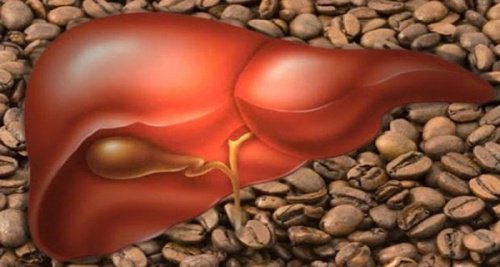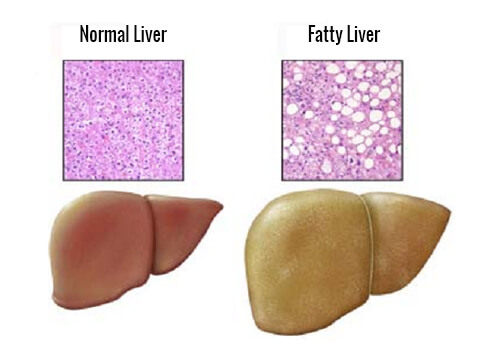Is Drinking Coffee Every Day Healthy?

Many studies have stated that drinking coffee daily (in moderation, of course) is beneficial for your health. For years, people have avoided coffee because they believed that its caffeine content was harmful. However, year after year, new studies state that drinking coffee is good for you.
A few studies have indicated that coffee has many positive effects. It may help treat and reduce the risk of conditions such as diabetes, Alzheimer’s and Parkinson’s.
New studies are revealing more and more benefits and great reasons to drink coffee. A study conducted by the National Cancer Institute in Bethesda, Maryland and published in the journal Hepatology stated that drinking coffee may have positive effects on the liver.
Read more here: 5 Coffee Recipes You Didn’t Know About
To conduct their research, scientists used data from the United States National Health and Nutrition Examination Survey (NHANES 1999-2010). They selected 27,793 participants age 20 or older.
Volunteers filled out a survey about their coffee drinking habits and researchers tested their blood, measuring different markers for liver function. The purpose of this study was to measure the health of participants’ livers.
They discovered that those who drank three or more cups of coffee a day had lower liver enzyme levels compared to non-coffee drinkers.
Researchers also found that other compounds in coffee, besides caffeine, may promote liver health when consumed in moderation.
Drinking coffee may reduce your risk of fatty liver and fibrosis

Another study, also published in Hepatology, showed that drinking coffee may significantly reduce the risk of accumulating connective tissue in the liver (fibrosis) in patients who suffer from non-alcoholic fatty liver disease.
The study determined that the caffeine in coffee can reduce the accumulation of connective tissue in those suffering from chronic liver diseases, like fibrosis.
To conduct their study, researchers interviewed 306 people about their caffeine consumption and divided them into groups: patients without signs of fibrosis, those with steatosis, and those with non-alcoholic steatohepatitis (NASH) stages 0-1 and 2-4.
Patients with steatosis who drank coffee showed a significant difference in comparison with stage 0-1 NASH patients.
Coffee consumption was higher among NASH stage 0-1 patients with 58% reporting regular coffee intake as compared to 36% of stage 2-4 patients.
Discover: 7 Facts All Coffee Lovers Should Know
According to experts, more testing and research is needed to determine the amount of coffee needed to impact clinical outcomes.
Possible benefits of coffee

People used to believe that this beverage could be harmful to our health. However, the benefits of drinking coffee are becoming increasingly apparent:
- Recent studies indicate that drinking coffee may reduce the risk of diabetes.
- Due to its antioxidant content, coffee is associated with a reduced risk of liver and bladder cancer.
- Coffee may reduce your risk of developing cirrhosis.
- Coffee may lower your risk of heart disease, thanks to its flavonoids content.
- It may also help relieve headaches and certain types of migraines.
- Coffee consumption is associated with a lower risk of gallstones and other gallbladder problems.
- Drinking coffee may stimulate gastric secretions, increasing bile production and contracting the gallbladder for better digestion.
- Numerous scientific studies have stated that individuals who drink three cups of coffee a day have a 50% lower risk of suffering from cognitive impairment.
All cited sources were thoroughly reviewed by our team to ensure their quality, reliability, currency, and validity. The bibliography of this article was considered reliable and of academic or scientific accuracy.
- Nieber, K. (2017). The Impact of Coffee on Health. Planta Medica. https://doi.org/10.1055/s-0043-115007
- Poole, R., Kennedy, O. J., Roderick, P., Fallowfield, J. A., Hayes, P. C., & Parkes, J. (2017). Coffee consumption and health: umbrella review of meta-analyses of multiple health outcomes. BMJ (Clinical Research Ed.). https://doi.org/10.1136/bmj.j5024
- Viola, P. (2005). Coffee and health. Journal of Applied Cosmetology. https://doi.org/10.1002/9781444347098.ch6
- Alferink, L. J. M., Fittipaldi, J., Kiefte-de Jong, J. C., Taimr, P., Hansen, B. E., Metselaar, H. J., … Darwish Murad, S. (2017). Coffee and herbal tea consumption is associated with lower liver stiffness in the general population: The Rotterdam study. Journal of Hepatology. https://doi.org/10.1016/j.jhep.2017.03.013
- Heath, R. D., Brahmbhatt, M., Tahan, A. C., Ibdah, J. A., & Tahan, V. (2017). Coffee: The magical bean for liver diseases. World Journal of Hepatology. https://doi.org/10.4254/wjh.v9.i15.689
This text is provided for informational purposes only and does not replace consultation with a professional. If in doubt, consult your specialist.








